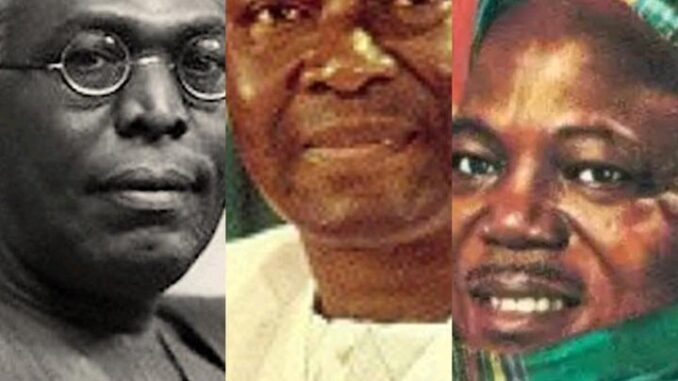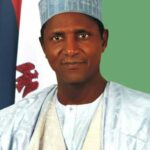
Dan Ulasi, former chairman of the Peoples Democratic Party (PDP) in Anambra State, has raised concerns about the backgrounds of Nigerian politicians and the disconnect that often exists between elected officials and the communities they represent.
Speaking during an interview on Arise News, Ulasi highlighted a pattern in the political landscape: children of Nigeria’s most prominent founding fathers, including Obafemi Awolowo, Nnamdi Azikiwe, Michael Okpara, and Ahmadu Bello, have not risen to occupy governorship positions, while individuals from humble beginnings frequently ascend to powerful offices.
“I haven’t seen the son of any big man—either Awolowo, or Zik, or Okpara, or Ahmadu Bello—that is governor. So incidentally, it means that the children of very poor people from very poor environment somehow managed to be members of houses of Assembly, national Assembly, governors,” Ulasi stated.
Ulasi emphasized that the rise of politicians from modest backgrounds underscores the opportunities that the political system can offer to the underprivileged.
However, he expressed concern that once these leaders attain office, many fail to maintain close ties with the communities and people who nurtured them. According to Ulasi, this disconnect contributes to governance challenges and public dissatisfaction.
“They come from the poor background, they manage to get there, but sometimes they forget where they come from. They forget the people, the streets, the homes, the neighbors, the market women who supported them in the early days,” he said.
The former PDP chairman observed that this pattern is not only a reflection of individual behavior but also a broader issue in Nigerian politics, where power often isolates leaders from ordinary citizens.
Ulasi argued that the failure to maintain connection with the electorate can erode public trust and undermine the effectiveness of governance.
Political analysts agree that Ulasi’s observations reflect a longstanding trend in Nigeria, where socioeconomic backgrounds influence both political access and governance style.
While children of political elites have historically leveraged family networks for influence, they rarely pursue executive positions such as governorships.
Conversely, leaders emerging from less privileged environments often rely on grassroots support to secure electoral victories, yet they are sometimes criticized for losing touch with their roots once in power.
Ulasi further suggested that leaders should deliberately cultivate humility and maintain engagement with their constituents to ensure policies address the real needs of communities.
He underscored the importance of participatory governance and accountability, particularly for politicians who benefited from grassroots support to reach high offices.
“You can come from humble beginnings, rise to power, but your people are your responsibility. You must never forget the streets, the schools, the hospitals, the markets that raised you,” he said.CONTINUE, FULL, READING>>>>
Find Verified News At Your fingertips Click The Link Above .








Leave a Reply